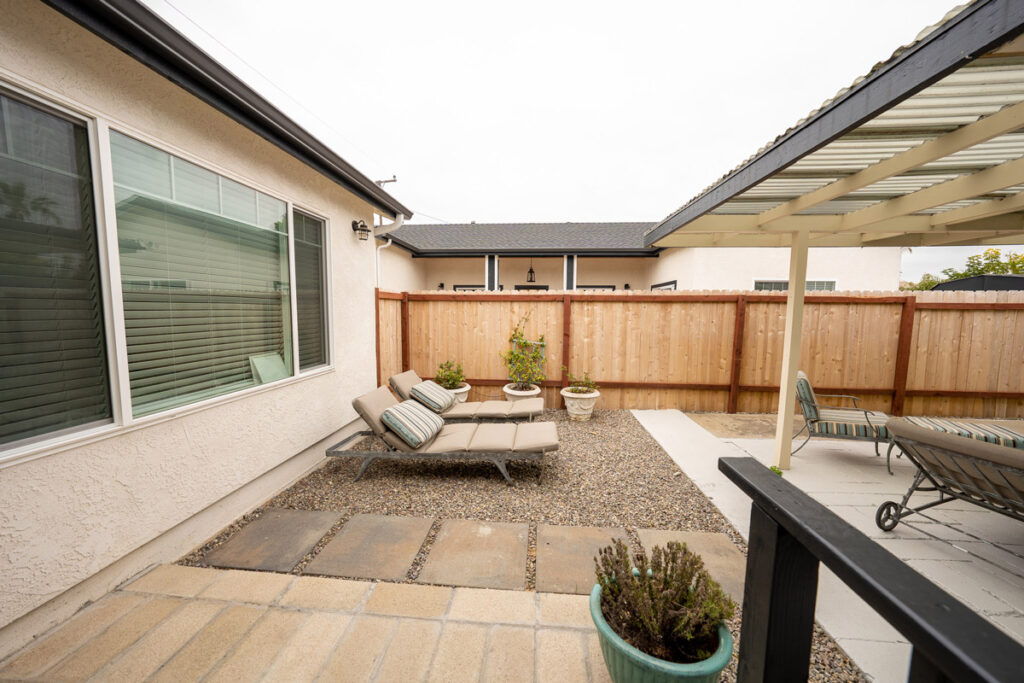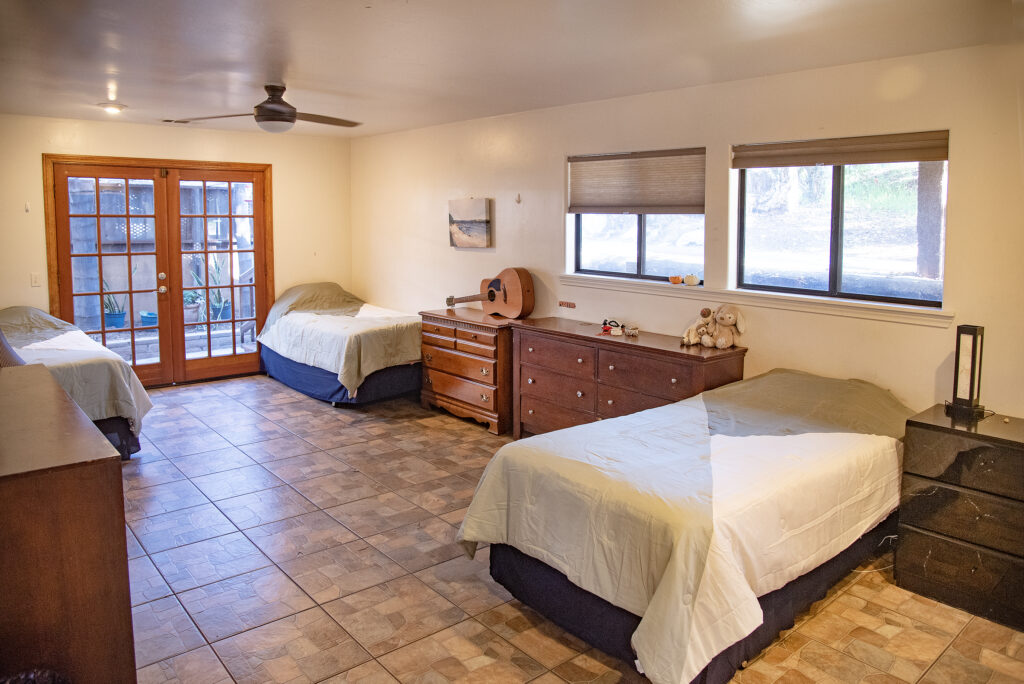Sober living housing provides a crucial stepping stone for individuals transitioning from addiction treatment to independent living. These residences offer a supportive and structured environment that promotes sobriety and personal growth. In this article, we will dive into what sober living entails, what you can expect in sober living housing, and the specific rules, regulations, and laws governing these homes in California.
What is a Sober Living?
Sober living housing, also known as sober living homes, are residential facilities that offer a safe, drug-free environment for individuals in recovery. These homes bridge the gap between inpatient treatment and independent living, helping residents develop the skills and habits necessary for long-term sobriety. Sober living homes provide a supportive community where residents can share their experiences and support each other’s recovery journeys.

What to Expect in Sober Living Housing
In sober living housing, residents can expect a structured environment designed to support their sobriety. Common features include:
House Rules: Residents must adhere to specific rules, such as curfews, attendance at house meetings, and participation in household chores.
Drug-Free Environment: Zero tolerance for drug and alcohol use, enforced through regular drug testing.
Support Meetings: Mandatory attendance at recovery meetings, such as 12-step programs or group therapy sessions.
Peer Support: A community of individuals committed to sobriety, offering mutual support and encouragement.
Life Skills Development: Opportunities to learn and practice essential life skills, such as budgeting, job searching, and maintaining a household.
Recreational Therapy: Access to hiking and other fun activities to help process emotions and build life skills.
Sober Living Rules and Regulations in California
California sober living laws govern sober living homes to ensure they provide a safe and supportive environment for residents. Key regulations include:
Licensing and Certification: Sober living homes in California are not required to be licensed, but must comply with local zoning laws and ordinances.
Resident Rights: Residents have the right to a safe, clean, and sober living environment, free from harassment and discrimination.
Health and Safety Standards: Homes must meet basic health and safety standards, including fire safety regulations and sanitary living conditions.

Sober Living Requirements
To qualify for sober living housing, individuals typically need to meet certain requirements:
Completion of Treatment: Most sober living homes require residents to have completed an addiction treatment program.
Commitment to Sobriety: Residents must demonstrate a commitment to maintaining sobriety, often through a period of abstinence before moving in.
Agreement to Follow House Rules: Residents must agree to adhere to the house rules and participate in household responsibilities.
Financial Responsibility: Residents are usually required to pay rent and contribute to household expenses.
Sober Living Drug Testing Policy
Sober living homes usually enforce a strict drug testing policy to ensure a drug-free environment. This policy typically includes:
Regular Testing: Scheduled drug tests to monitor residents’ sobriety.
Random Testing: Unannounced drug tests to deter substance use.
Consequences for Positive Tests: Clear consequences for positive drug tests, which may include increased monitoring, mandatory counseling, or eviction from the home.
Understanding Sober Living
Sober living housing is more than just a place to stay; it’s a supportive community that fosters personal growth and long-term sobriety. By understanding the rules, regulations, and expectations, individuals can better prepare for the sober living experience. In addition to sober living homes, mental health housing is also available for those with co-occurring disorders.
Sober living housing plays a critical role in helping individuals transition from treatment to independent living. For those seeking a structured and supportive environment to continue their recovery journey, sober living homes in California offer a valuable resource. Understanding what to expect, including the rules, regulations, and drug testing policies, can help individuals make informed decisions about their recovery path. If you or a loved one is considering sober living, reach out to us, and we can help you find the perfect sober living in your area.
Frequently Asked Questions About What To Expect in Sober Living
How long do most people stay in sober living?
The length of stay in sober living varies depending on individual needs and progress in recovery. On average, most people stay in sober living for about 6 to 12 months. However, some residents may stay for shorter periods, such as a few months, to reinforce their sobriety skills, while others might remain for several years to ensure a solid foundation before transitioning to independent living. The flexibility of sober living homes allows individuals to stay as long as they need to feel confident and prepared to maintain their sobriety on their own.
What support services are available in sober living?
Sober living homes offer a variety of support services to help residents maintain their sobriety and develop life skills. Common support services include:
- Peer Support: Living with others who are committed to sobriety provides a built-in support network.
- Recovery Meetings: Mandatory attendance at 12-step programs, group therapy, or other recovery meetings.
- Counseling Services: Access to individual and group counseling to address underlying issues related to addiction.
- Life Skills Training: Assistance with developing practical skills for independent living, such as budgeting, job searching, and time management.
- Recreational Therapy: Activities that promote physical health and well-being, such as exercise classes, outdoor activities, and hobbies.
- Mental Health Support: Some sober living homes offer integrated care for individuals with co-occurring mental health issues, providing access to mental health professionals and medication management.
Is sober living right for me?
Determining if sober living is right for you depends on your individual needs and recovery goals. Sober living homes are beneficial for those who have completed an addiction treatment program and need a supportive environment to transition back to independent living. Consider sober living if:
- You Lack a Stable, Drug-Free Home Environment: If your current living situation is not conducive to maintaining sobriety, sober living can provide the stability and support you need.
- You Need Additional Support: If you require continued support to reinforce your recovery skills and develop healthy routines, sober living offers structured support services.
- You Value Community and Peer Support: Sober living homes provide a community of individuals who share similar recovery goals, offering mutual support and encouragement.
- You Want to Develop Life Skills: Sober living homes help residents learn and practice essential life skills needed for independent living.
If these considerations align with your needs and goals, sober living could be a valuable step in your recovery journey. It provides a safe and supportive environment to help you build a solid foundation for long-term sobriety.

Aaron Priddy began his career working for non-profit organizations–specifically in the area of Probation and Parole Recovery–first as a Mentor then as an Operations Coordinator. In this field, he highlighted his personal journey through recovery and helped others navigate their own journey. He eventually gained a Registered Alcohol and Drug Technician credential from CCAPP and began utilizing his credential for group facilitation. Once this proverbial door opened his old friend and colleague reached out to him about an open Support Staff position at Crownview Psychiatric Disorders Institute. He jumped at the chance to work in the Co-occurring Recovery field. He has taken on various roles at Crownview and Experience Structured Living, which have included Lead Support Staff, Case Manager, Family Liaison, Discharge Planner, and now in his current role as Director of Admissions. Aaron has been 10 years clean and sober, and he recently graduated with his degree in Business Administration.





